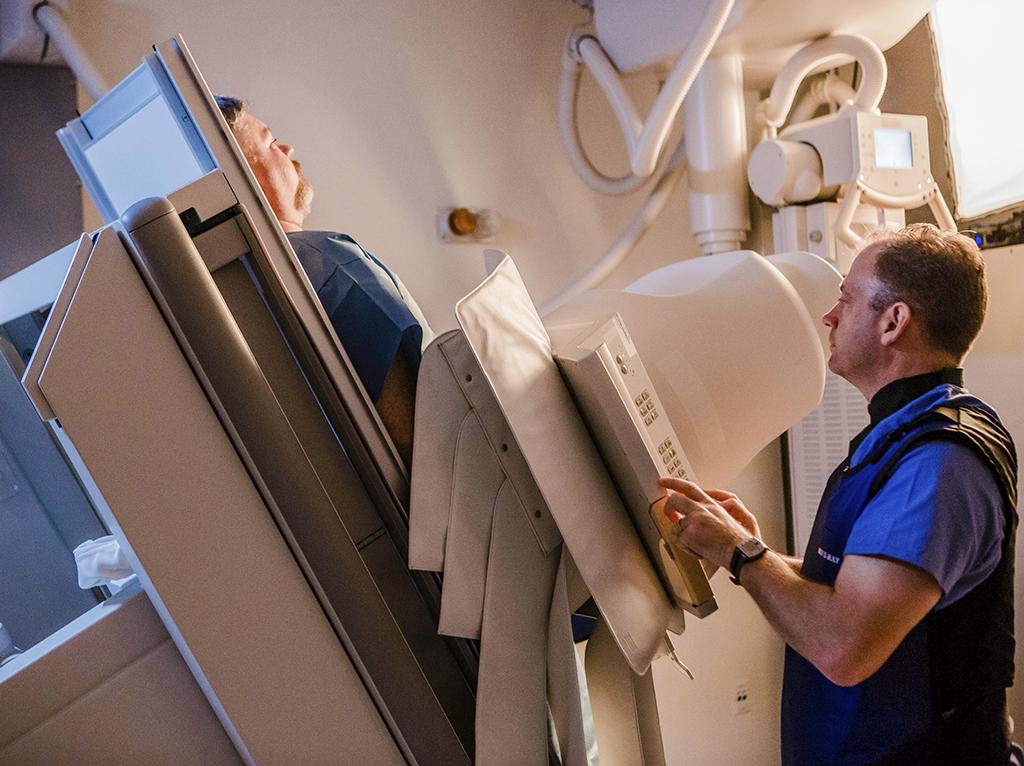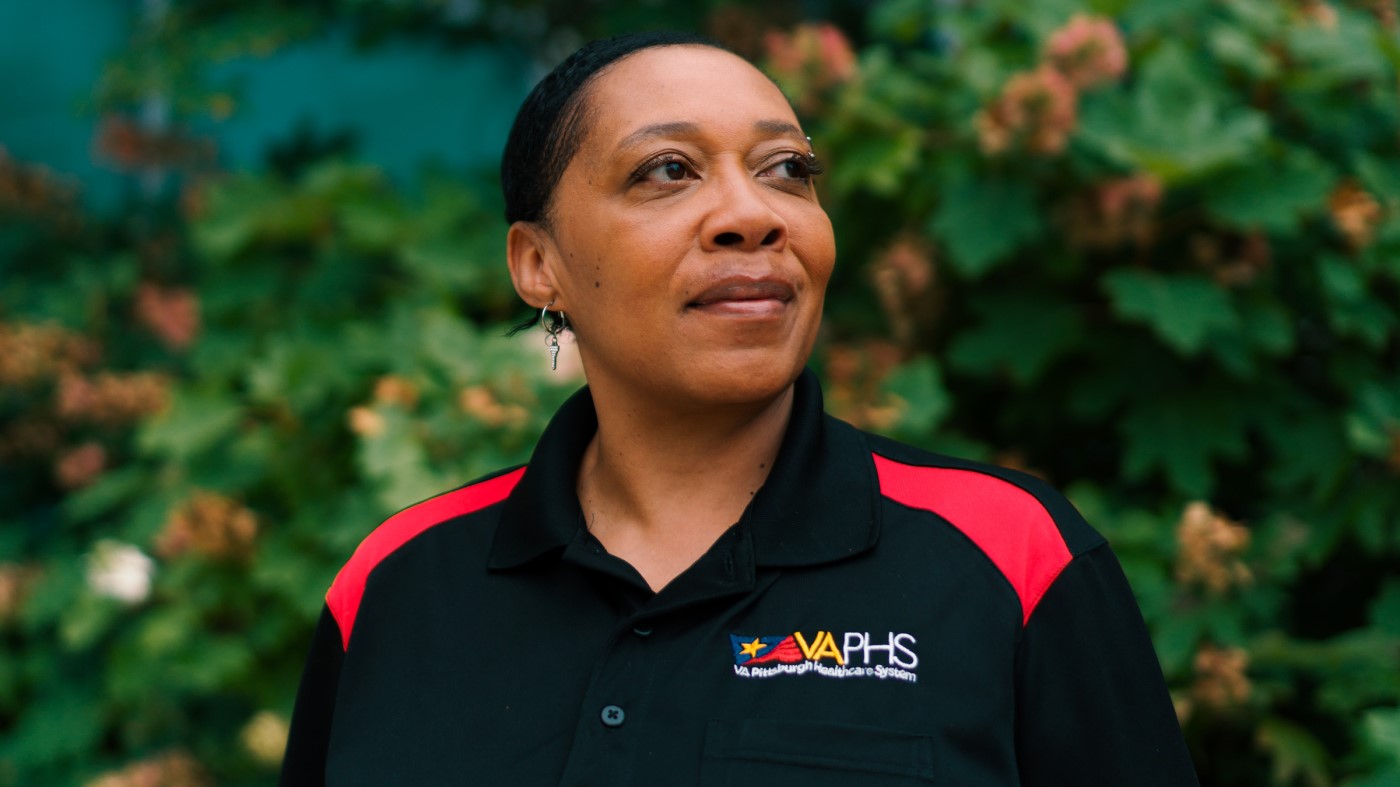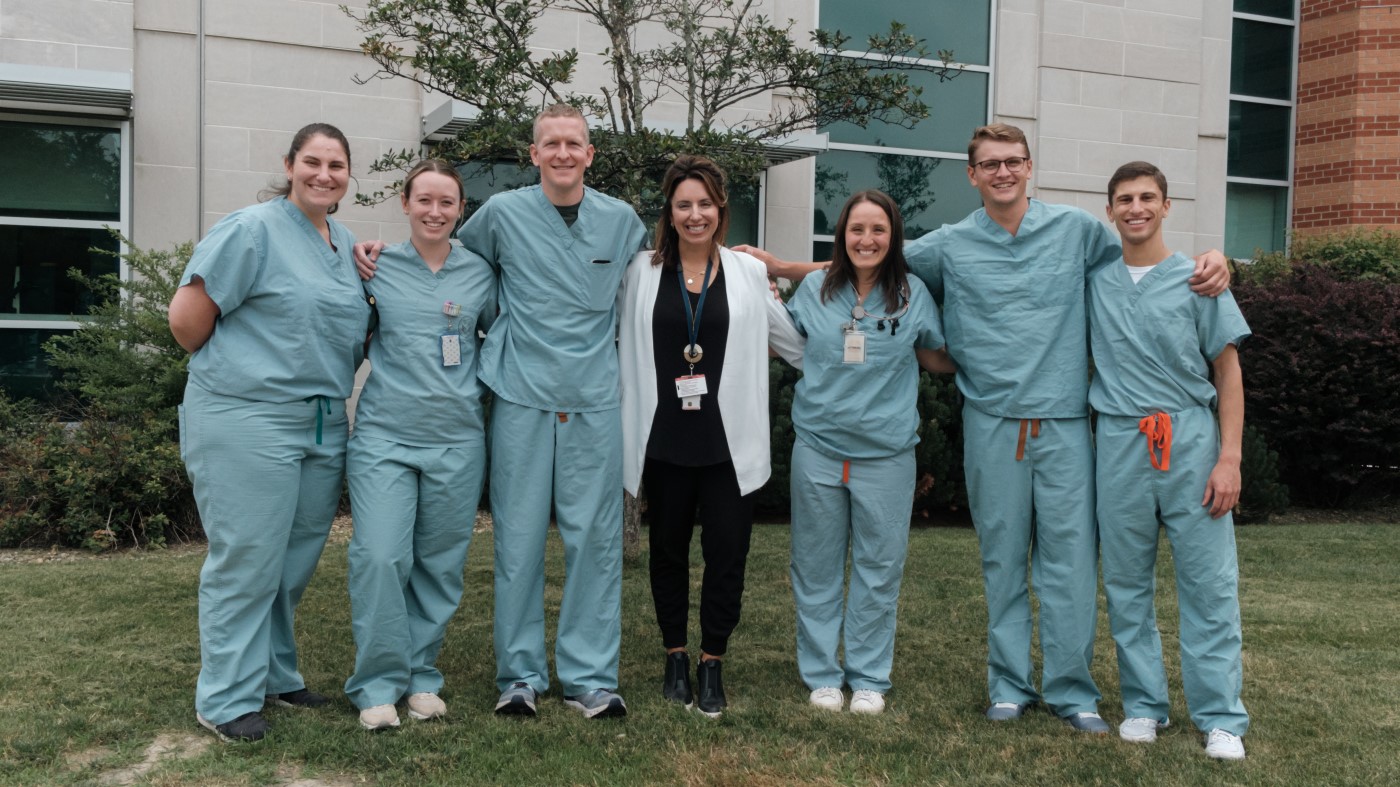VA is a leader in spinal cord injury care, providing Veterans a coordinated continuum of services that enable greater independence and a higher quality of life. Our Spinal Cord Injuries and Disorders (SCI/D) System of Care is organized in a network of “hubs and spokes.” At VA’s 24 nationwide hubs, multidisciplinary teams—including doctors, nurses, social workers, therapists, psychologists and others—are on hand to treat patients with spinal cord injuries. These hubs work closely with surrounding medical facilities that do not have SCI/D centers, known as spokes, to ensure Veterans receive primary care from providers with SCI/D training who can monitor the development any spinal cord-related issues.
SCI/D hubs are equipped with up-to-date technology to best serve Veterans through each stage of treatment and recovery. At the Michael E. DeBakey VA Medical Center in Houston, Texas, for example, Veterans have access to a wealth of clinical resources:
• Outpatient clinic
• Home care program
• Urodynamics lab
• Occupational therapy lab
• Physical therapy and kinesiotherapy clinic
• Therapeutic pool
• Transitional living apartment for training and more
Also, the new Rocky Mountain Regional VA Medical Center, opening August 4 in Denver, Colorado, features a 30-bed inpatient SCI/D Center providing full rehabilitative, surgical, respite, tele-health and long-term care. It’s all part of VA’s commitment to deliver comprehensive, compassionate health care to Veterans nationwide.
The advancement and expansion of these critical SCI/D services mean more opportunities to experience a challenging and rewarding career serving Veterans. You’ll gain experience treating the complex physical and psychosocial needs unique to SCI/D. Make the most of your advanced knowledge and skills with VA and make a difference in the lives of our nation’s heroes. Ready to join VA? Explore our current opportunities and apply today.
Topics in this story
More Stories
Whether it’s access to the great outdoors or a calmer pace in your everyday life, you can find it in rural VA communities around the country.
If you’re looking for an opportunity to provide care to Veterans outside a traditional clinical setting, Home Based Primary Care (HBPC) is a great option.
A key part of your job search is finding the right fit for you and your skills, and workplace culture can impact that dramatically.







I have waited 50 years to access the VA services aftr being declined upon discharge for spinal care. Now there are serious consequences of continued advancement of the damage, and I don’t even know where to start to reopen my claim or file a new one. The VA docs do not want to get involved in the claim process. Any advice would be welcomed.
I got a work injury on my cervical spine in 1994 and had ask for a MRI in 2017, I had called to find out what was taking so long, the person that took my call told me that it was rejected. not pleased. just wanted to make sure things were good.
I served in the infantry for about three years and sustained a number of spinal cord injuries including fractures and a slipped disc. I am more than impressed with the VA’s care and would urge any vet to seek help early and fast since, the longer you wait the risk you take. Your body heals much faster when you are younger especially, the spine.
-Fred
USMC
VA is the best care with spinal cord, paraplegic, blind rehab, audiology, prosthetics, Hepatitis C . Private for profit care cannot and would not deliver such care. Socialized medicine works and the VA is proof enough.
Veterans earned that right to such medical care and by securing our economic freedoms (among many others). The US Congress appropriates funds for such medical care and that costs money. This is a site for the VA and volunteers of the service. If single-payer was possible California would have done it by now. It is not possible in the US. Not enough people pay into the system. Again, we earned it.